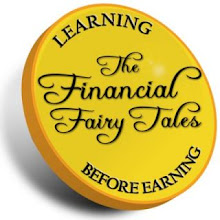The Benefits of Teaching Younger Kids About Money
The Benefits of Teaching Younger Kids About Money
The benefits of teaching your children about money can be both immediate and longer term. In the short term, you are encouraging them to develop good saving habits, which may last a lifetime. They will also learn how to make informed purchases, and perhaps even understand why they can't immediately get everything they want. In the long term, you are helping them avoid accumulating debt. By showing them the value of saving for the future, you can help your children plan for their financial security.
It’s never too early to start teaching you kids about money. Allow your children to help you determine what they are curious about and how best to teach them. You can use their questions to help develop lessons and conversations about money.
Explain to children that money is earned and is relative to the value that people give. An ideal time to begin teaching your children about the basics of money is when they first begin to notice it. To a young child, money comes from Mum and Dad's pockets or purse. Or the magic hole in the wall machine that spouts dollars after merely pushing a few buttons. It's understandable therefore, for kids to assume that money is readily available whenever it's needed.
When you are trying to explain why you can't meet their every demand, it’s better to avoid an overused response such as, "Money doesn't grow on trees" when a more constructive explanation may serve both of you better. Consider instead encouraging your child to look at the consequences of the purchase. If they have A they can’t have B, or how could they save or earn the money for themselves?
Even very young children can begin to understand the concept of earning money. Explain to your children that money is received in exchange for working or as a return on an investment, and that you can only spend what you earn. To help them understand what it's like to get paid on a schedule, begin paying an allowance. Then help them set goals for how they spend and save their allowance. It's important, however, to make sure that you stick to the payment schedule; otherwise the lesson may be lost.
You may like to consider the spend; share, save method, where everything your child earns or receives they divide into the three areas. In this way you are encouraging them to develop good money management habits and also the principles of charity and helping others. You may consider adding a little extra to their savings as a way of demonstrating interest.
When paying pocket money or an allowance it is important not to set up an entitlement mentality in your child. If they think that they have a right to receive money from you from an early age they may grow up with that mindset. By all means link the allowance to chores and jobs around the home but consider that some tasks which contribute to the household should be done automatically and not for paid reward. You may like to create a separate list of family or community activities which the entire household share, along with an agreed list of extras activities for which your child will receive reward.
Labels: kids and money, teaching children about money, teaching kids about money


